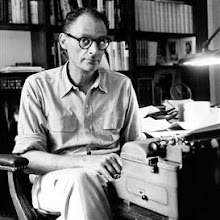 Christian Johann Heinrich Heine (December 13, 1797 – February 17, 1856) was a journalist, essayist, and one of the most significant German romantic poets. He is remembered chiefly for selections of his lyric poetry, many of which were set to music in the form of lieder (art songs) by German composers.
Christian Johann Heinrich Heine (December 13, 1797 – February 17, 1856) was a journalist, essayist, and one of the most significant German romantic poets. He is remembered chiefly for selections of his lyric poetry, many of which were set to music in the form of lieder (art songs) by German composers. Heine was born into a family of assimilated German Jews in Düsseldorf, Germany, which was then occupied by France (becoming part of Prussia in 1815). He was called "Harry" as a child, but after his baptism in 1825 he became "Heinrich."[1]
His father was a merchant, and his mother, the daughter of a physician, was a refined and educated woman. When his father's business failed, Heine was sent to Hamburg. His wealthy banker uncle, Salomon, encouraged him to go into commerce, but his ventures in this sphere were not successful. Instead, he took up law, studying at the universities of Göttingen, Bonn and Berlin, where he heard Hegel's lectures on the philosophy of history (he later wrote a short satirical poem about Hegel's philosophy, entitled Doctrine). During his student years he participated in the Verein für Kultur und Wissenschaft des Judentumes ("Society for the Culture and Scientific Study of Judaism"). Heine only stayed in the society for three years and left the group before earning a degree in law in 1825. The same year, he opted to convert from Judaism to Protestantism.
Jews were subject to severe restrictions in many of the German states at that time. They were forbidden from entering certain professions, including university lecturing, which was a particular ambition for Heine. As Heine said in self-justification, his conversion was "the ticket of admission into European culture". He wrote, "As Henry IV said, 'Paris is worth a mass'; I say, 'Berlin is worth the sermon.'" For much of the rest of his life Heine wrestled over the incompatible elements of his German and his Jewish identities.
His father was a merchant, and his mother, the daughter of a physician, was a refined and educated woman. When his father's business failed, Heine was sent to Hamburg. His wealthy banker uncle, Salomon, encouraged him to go into commerce, but his ventures in this sphere were not successful. Instead, he took up law, studying at the universities of Göttingen, Bonn and Berlin, where he heard Hegel's lectures on the philosophy of history (he later wrote a short satirical poem about Hegel's philosophy, entitled Doctrine). During his student years he participated in the Verein für Kultur und Wissenschaft des Judentumes ("Society for the Culture and Scientific Study of Judaism"). Heine only stayed in the society for three years and left the group before earning a degree in law in 1825. The same year, he opted to convert from Judaism to Protestantism.
Jews were subject to severe restrictions in many of the German states at that time. They were forbidden from entering certain professions, including university lecturing, which was a particular ambition for Heine. As Heine said in self-justification, his conversion was "the ticket of admission into European culture". He wrote, "As Henry IV said, 'Paris is worth a mass'; I say, 'Berlin is worth the sermon.'" For much of the rest of his life Heine wrestled over the incompatible elements of his German and his Jewish identities.
 Christian Johann Heinrich Heine (eredeti nevén Harry Heine, Düsseldorf, 1797. december 13. – Párizs, 1856. február 17.) német romantikus költő, író, újságíró. Egyszerre mondják a romantika utolsó költőjének és a romantikát meghaladó realista és modern költőnek. Műveiben a német köznyelv irodalmivá vált. Újságíróként, tudósítóként tárcáinak, utazási élményeinek eddig nem ismert irodalmi színt, elegáns légiességet adott, evvel együtt pedig magának a német nyelvnek is. Kritikus, politikailag elkötelezett újságíróként, esszéistaként, szatírikusként, vitázóként egyaránt volt csodált és rettegett. Egyike a leggyakrabban fordított német nyelvű költőknek. Megítélése, s az életművéhez való viszony gyakran változott és változik a történelem folyamán, napjainkban is. A romantika jegyében született és általa modernné és egyedivé formált lírája és az egész Európa gondjait látó és elemző publicista és esszéista a nagy triász harmadik tagja, Johann Wolfgang von Goethe, Friedrich Schiller és Heinrich Heine a három klasszikus óriás a német nép irodalmában. Heinrich Heine annyit jelent a németeknek a német irodalomban, mint nálunk Petőfi Sándor a magyar irodalomban.
Christian Johann Heinrich Heine (eredeti nevén Harry Heine, Düsseldorf, 1797. december 13. – Párizs, 1856. február 17.) német romantikus költő, író, újságíró. Egyszerre mondják a romantika utolsó költőjének és a romantikát meghaladó realista és modern költőnek. Műveiben a német köznyelv irodalmivá vált. Újságíróként, tudósítóként tárcáinak, utazási élményeinek eddig nem ismert irodalmi színt, elegáns légiességet adott, evvel együtt pedig magának a német nyelvnek is. Kritikus, politikailag elkötelezett újságíróként, esszéistaként, szatírikusként, vitázóként egyaránt volt csodált és rettegett. Egyike a leggyakrabban fordított német nyelvű költőknek. Megítélése, s az életművéhez való viszony gyakran változott és változik a történelem folyamán, napjainkban is. A romantika jegyében született és általa modernné és egyedivé formált lírája és az egész Európa gondjait látó és elemző publicista és esszéista a nagy triász harmadik tagja, Johann Wolfgang von Goethe, Friedrich Schiller és Heinrich Heine a három klasszikus óriás a német nép irodalmában. Heinrich Heine annyit jelent a németeknek a német irodalomban, mint nálunk Petőfi Sándor a magyar irodalomban.
















.jpg)


















Nincsenek megjegyzések:
Megjegyzés küldése